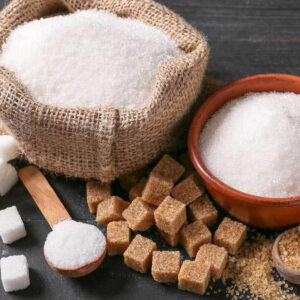People researching beet sugar vs cane sugar often want to know which mixes easily in liquids.
People researching beet sugar vs cane sugar often want to know which mixes easily in liquids.
Blog Article
Recognizing the Nutritional Benefits of Beetroot Sugar Vs Walking Cane Sugar for Health And Wellness Conscious Customers
When analyzing the nutritional effects of beetroot sugar versus walking stick sugar, health-conscious consumers discover that both varieties largely include sucrose and offer comparable calorie values, each contributing around 16 calories per teaspoon. Despite this similarity, neither type gives significant wellness advantages, as they are without important nutrients. Checking out the wider influences, consisting of ecological factors to consider and long-term health and wellness effects of sugar intake, may brighten much more nuanced distinctions between these two sugars.
Nutritional Profile and Caloric Worth of Beet Sugar and Walking Stick Sugar
Although both beet sugar and walking stick sugar are mostly made up of sucrose, their nutritional profiles and caloric worths are incredibly similar. There are trace differences in the contaminations that remain after handling, which can slightly affect the flavor and color of the sugars, but these are minimal in terms of health and wellness influence. For customers focusing on nutritional influence, the choice between beet and walking stick sugar is more regarding individual preference or possible ecological issues rather than dietary distinctions.
Environmental Impact and Sustainability of Sugar Manufacturing
While the nutritional distinctions in between beet sugar and walking stick sugar are marginal, their production procedures provide even more significant disparities, specifically in terms of ecological effect and sustainability. In contrast, beetroot sugar production normally needs less land and can be cultivated in more pleasant climates, which may minimize the demand for irrigation and the involved water source deficiency.
However, beetroot growing is not without its ecological obstacles; it includes significant power inputs, particularly in the north environments where it is expanded, as a result of the need for longer home heating periods in sugar handling. Both sugar beet and sugar walking cane industries are Visit Your URL exploring extra lasting methods, consisting of crop rotation, natural farming, and enhanced waste administration strategies to minimize these effects.
Wellness Impacts and Recommendations for Sugar Intake
In spite of their very little nutritional differences, both beet sugar and walking stick sugar can have harmful health and wellness effects when eaten in extra. High intake of either kind of sugar adds to a variety of health concerns, including weight problems, type 2 her comment is here diabetes mellitus, and heart condition. Both sugars are pure sucrose and deal no vital nutrients in addition to calories, leading to fast spikes in blood glucose levels upon intake.


Conclusion

Report this page